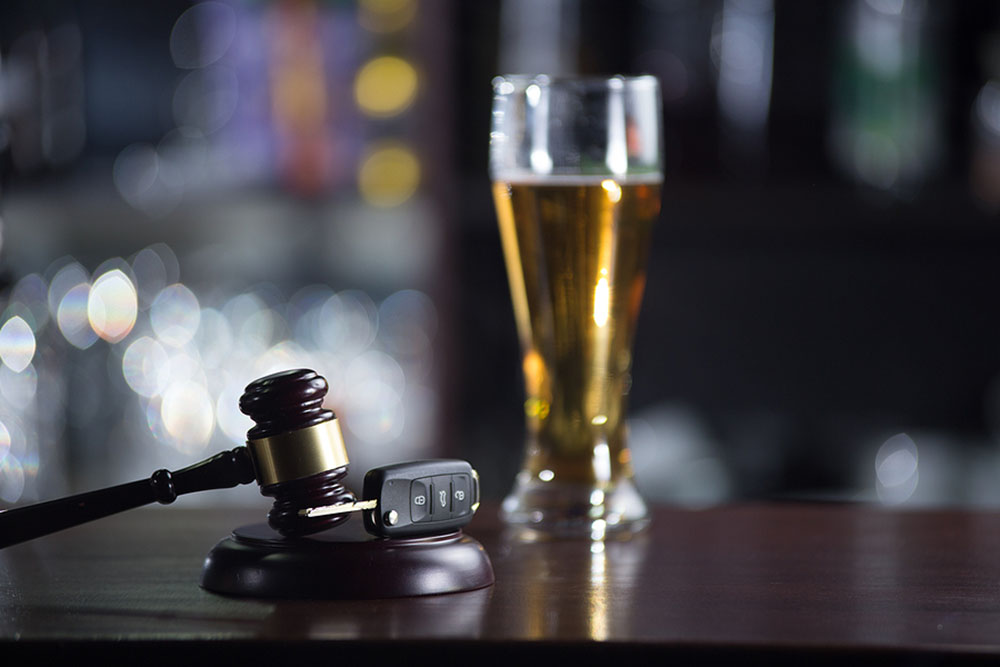What Are the Standard Field Sobriety Tests in Delaware?
When police officers stop you on suspicion of drunk driving, they may require you to undertake field sobriety tests. Drunk driving charges can arise from the outcome of the sobriety tests, so it would help to seek counsel of lawyers from a reputable DUI Defense Attorney in Delaware to protect your rights.
Under the law, police officers can use the following standardized tests to gauge your level of intoxication when they make a DUI stop. The National Highway Traffic Safety Administration endorses the following tests:
Horizontal Gaze Nystagmus Test
The Horizontal Gaze Nystagmus (HGN) refers to the eyeball’s involuntary jerk as it rotates in its socket. Under normal circumstances, without intoxication, the eye can follow a moving object smoothly without repeatedly starting and stopping. When intoxicated, HGN is more pronounced and exaggerated, leading to a jerking motion as the eyes rotate.
Wilmington DUI lawyer explains that during an HGN test, police officers will make you follow an object with your eyes, usually a flashlight or pen, as they look for three criteria of intoxication in the test. If you demonstrate four or more mistakes or clues, the officers can allege that you had a blood alcohol level of at least 0.10 0.08 or greater.
Walk and Turn Test
The one walk and turn test entails taking 9 heel-to-toe steps in a straight line, turning on one foot, and returning by taking nine more heel-to-toe steps. During the test, the law enforcers enforcement officers will look for eight possible clues that indicate your level of intoxication. Two clues are enough for the officers to charge and arrest you for a DUI in Delaware.
One Leg Stand Test
A law enforcement officer may require you to stand with one foot raised at least 6 inches high and count numbers in a specific sequence, for example, in the hundreds, until instructed to stop. The standard amount of time for the test is 40 seconds while the officer looks for four accepted intoxication indicators, such as:
- Hopping
- Putting your foot down before the time ends
- Swaying
- Using your arms to balance
Defending yourself from DUI charges based on mistakes or clues during field sobriety tests can be challenging. It would help if you retain the services of aggressive Delaware DUI defense lawyers to help you create a robust defense strategy.
Non-Standardized Field Sobriety Tests
Law enforcement officers may also subject you to non-standardized field sobriety tests besides those above. They may include:
- Counting backward
- Reciting the alphabet
- Counting the fingers an officer raises
- Standing with your feet together and tipping your head backward
- Standing and leaning backward to look up to the sky with your arms held to the side
- Closing your eyes and touching your nose with a finger
Are Field Sobriety Tests Mandatory in Delaware?
The outcome of field sobriety tests can largely influence your case’s outcome, so it’s vital to understand your rights under these circumstances. DUI defense lawyers in Wilmington explain that declining field sobriety testing may be in your best interests.
They explain that any mistakes you make during the field tests may be subject to the wrong interpretation that you were intoxicated and can be used to build a strong case against you. You’re under no obligation to take field sobriety tests in Delaware, and police officers are not allowed to force you to take them if you decline their request.
How Accurate Are Field Sobriety Tests?
Law enforcement officers often administer field sobriety tests to establish probable cause in drunk-driving cases. Therefore, many people assume that the tests are accurate, but they are not always a reliable method of determining the level of impairment. They are only indicative of the presence of an intoxicating substance, not the inability to drive a car.
If you’re arrested based on a field sobriety test score, you can challenge the result to fight the criminal charge. Skilled DUI defense lawyers in Wilmington can evaluate your case and provide legal counsel on how best to beat the charges. Possible defenses to a DUI charge include the following:
- Lack of reasonable suspicion: Your lawyers can argue that the police officers didn’t have reasonable articulable suspicion to pull you over. For example, swerving within your lane is not a violation.
- Lack of probable cause: Police officers must have probable cause to arrest you before administering a field sobriety or breath test. Probable cause is the fair probability that you drove under the influence, without which the court can suppress any evidence against you.
- Violations in discovery: If police officers destroy or lose any evidence related to your DUI case, the court may assume that the missing evidence would favor you, which could lead to your acquittal, depending on the strength of your defense strategy. Late disclosure of evidence could also be another reason to have the charges dismissed.
- Compelled field sobriety tests: The law in Delaware is against forced field sobriety tests. If you can prove that you were forced to take the tests, the court could suppress the evidence in your favor.
A Skilled DUI Defense Lawyer Helping You Navigate DUI Charges
If police officers stop you and request you to take field sobriety tests on suspected drunk driving, you could refuse to accept the tests without additional legal consequences. However, you could also challenge the results if you take the tests. Your rights and future are at stake, and fighting aggressively to protect them is crucial. Experienced Delaware DUI defense lawyers can help you.
The Delaware DUI Defender is a reputable law firm with skilled attorneys to help you beat DUI charges. A past mistake should not dictate your future, so we can fight hard to help you avoid a conviction. Call us at 302-678-8700 to schedule a case assessment.





 CALL US NOW
CALL US NOW
